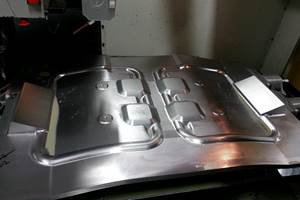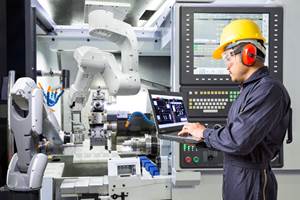Don’t Expect Others To Know What You Know
We accumulate knowledge every day. While something weŌĆÖve just learned is still new, we tend to think about it more. We doubt whether we truly understand it, so until we do, weŌĆÖre extra careful. However, as time goes on we eventually stop doubting and become confident through positive experience that we thoroughly understand what weŌĆÖve learned.
Share





The longer people work for a company, the more they tend to take for granted what they know about it, its processes and what needs to be done to complete jobs. Many people forget what it took to get where they are, and they can do just about anything without needing help. Several years of accumulating knowledge in this fashion can lead to the ability to do almost anything without having to think much.
While accumulating knowledge is a good thing, it can lead to unfair expectations when it comes to what is expected of othersŌĆöespecially newcomers. As a person of responsibility, you must be careful not to expect others to know what you know or to be able to do what you doŌĆöat least not without having the same experiences and opportunities that you have had.
A personŌĆÖs general personality and outlook has a lot to do with the potential for problems in this regard. Some people are simply more patient and understanding than others. This, in turn, makes them easier to deal with. Conversely, other people are not so patient and understanding. This makes them more difficult to work with.
While these tendencies are easy to recognize, this whole topic is pretty relative. No one likes to think that they are difficult to work with, so we seldom recognize this negative tendency in ourselves.
So what does this have to do with the CNC environment? Admittedly, much of this relates more to a personŌĆÖs personality than to the CNC environment. Understanding our tendency for unrealistic expectations of others can lead to making some dramatic improvements in the CNC environment.
When you come across a specific task that someone is struggling with, remember back to the time when you had the same problem. Try to remember what it took to overcome it. Armed with this knowledge, you will be able to simplify the effort required to master the task for others. Consider these examples:
ŌĆó Procedures. Whenever a person must learn a new task, specific procedures almost always help. Even something as basic as turning on a machine can be simplified with a step-by-step procedure. Without this, the person trying to master the task will be left completely on their own to figure out a solution. While they will eventually develop a workable method, it may not be the way you want the task to be performed. If you provide a procedure, the person learning the task will master it more quickly, and they will do things in the way you want them done.
ŌĆó Unwritten rules. ThereŌĆÖs probably a lot your company takes for granted when it comes to the people responsible for CNC machines. Many companies have unwritten rules that dictate how certain things are done. You may expect, for example, that all CNC people know how to determine which offsets are related to a given cutting tool. YouŌĆÖve been working with this method for so long that you canŌĆÖt even imagine another way of doing it. However, newcomers, and even people experienced with other methods, will not know what you expect or why you do things the way you do. Be sure to document and explain all the unwritten rules your company uses.
ŌĆó Company slang. Almost every company has developed special lingo for certain facets of the company. It can be very difficult to understand even very basic discussions when the lingo is used.
One example of this includes numbers used to specify departments. The number 401 may be used to designate a given cell or department. If a newcomer hears you say, ŌĆ£Parts coming from 401 need re-work,ŌĆØ does he or she know what you mean?
Another example of company slang includes product codes or unrecognizable product names. Many companies use special names or numbers to refer to products or workpieces they make. Even experienced CNC people may not know these codes if they are new to your company.
Make sure to explain this special set of terms to newcomers as part of their orientation to your company.
ŌĆó Special training. Many companies provide in-plant training classes on important topics or send their people to outside classes to learn more. If youŌĆÖve attended any of these classes, it would be unfair to expect someone who has not to know what you learned.
Related Content
2 Secondary Coordinate Systems You Should Know
Coordinate systems tell a CNC machine where to position the cutting tool during the program’s execution for any purpose that requires the cutting tool to move.
Read More4 Rules for Running a Successful Machine Shop
Take time to optimize your shop’s structure to effectively meet demand while causing the least amount of stress in the shop.
Read More4 Tips for Staying Profitable in the Face of Change
After more than 40 years in business, this shop has learned how to adapt to stay profitable.
Read More6 Machine Shop Essentials to Stay Competitive
If you want to streamline production and be competitive in the industry, you will need far more than a standard three-axis CNC mill or two-axis CNC lathe and a few measuring tools.
Read MoreRead Next
Last Chance! 2025 Top Shops Benchmarking Survey Still Open Through April 30
Don’t miss out! 91╩ėŲĄ═°šŠ╬█'s Top Shops Benchmarking Survey is still open — but not for long. This is your last chance to a receive free, customized benchmarking report that includes actionable feedback across several shopfloor and business metrics.
Read MoreMachine Shop MBA
Making Chips and 91╩ėŲĄ═°šŠ╬█ are teaming up for a new podcast series called Machine Shop MBA—designed to help manufacturers measure their success against the industry’s best. Through the lens of the Top Shops benchmarking program, the series explores the KPIs that set high-performing shops apart, from machine utilization and first-pass yield to employee engagement and revenue per employee.
Read MoreAMRs Are Moving Into Manufacturing: 4 Considerations for Implementation
AMRs can provide a flexible, easy-to-use automation platform so long as manufacturers choose a suitable task and prepare their facilities.
Read More.jpg;width=70;height=70;mode=crop)




















